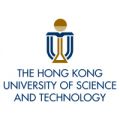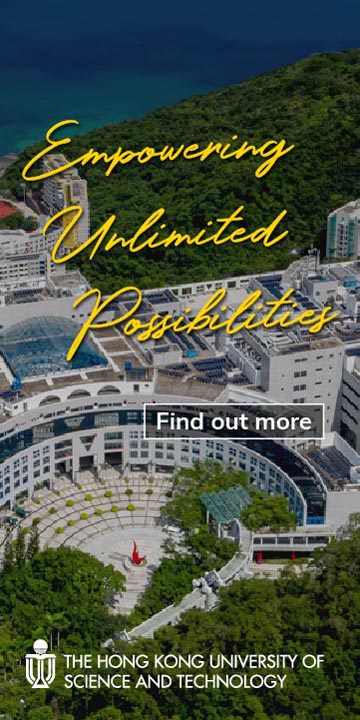
Throughout Zhang Yunfei’s life, his imagination has spiraled up into the clouds, plunged deep into the ocean, and eventually rocketed outwards into the creation of a unicorn company. His journey to success was an illuminating one, through postgraduate study and on to entrepreneurship, and one of the most significant discoveries the young entrepreneur made along the way was recognizing the value of a supportive learning and research environment. As an HKUST alumnus, he saw first-hand the benefits of accessible, well-managed state of the art research facilities, and it was also at HKUST where he cultivated the hobbies and interests that would carry him on to his rewarding career — and onto the high seas!
Before he became a world-leading mechanical engineer for unmanned ships, Zhang Yunfei was a curious and inquisitive boy growing up in Shenzhen, obsessed with tinkering with machines and his toys, to try and understand what made them tick. He built his first ship model with his father when he was at primary school. In middle school, he moved on to technology interest groups and building model ships with classmates for competitions. In his boyhood, Yunfei found himself firmly on course for a future in technology.
When he arrived at HKUST, he was hopeful, driven, and armed with a lifetime’s worth of curiosity. While many of his peers were looking up to the clouds and focused on building drones, Yunfei set his sights on a different frontier — the ocean. Joining forces with a group of like-minded friends, he set about pushing the limits, by creating an unmanned surface vehicle (USV). The team converted a model ship into a USV fitted with sensors and instruments for sampling water quality, before setting it sailing from Clear Water Bay, Hong Kong. At first, the group intended to use USVs to detect water quality parameters, but fate had other plans.
“HKUST gave me maximum freedom and a dynamic learning and growth environment.”
The USV team began entering entrepreneurship competitions, including the HKUST One Million Dollar Entrepreneurship Competition, where they learned about business concepts such as market positioning, and market demand. They received invaluable support from HKUST in acquiring technological know-how and entrepreneurial skills.
Equipped with a sense of steely determination and purpose, Yunfei knew there was a market gap that he and his friends could fill, and he went on a market-research trip to more than ten Chinese provinces with serious water pollution. He studied how USVs were being used to monitor water quality and clean-up initiatives, confirming his hypotheses and giving him the confidence he needed to take the next big step in his work.
Yunfei and his teammates embarked on their entrepreneurial journey in 2010 by founding Yunzhou. It was one of a handful of companies around the globe specializing in ocean-going drones that operate on the surface. They eagerly began research and development work using their prize money from competitions and fundings, but before long they ran into trouble. The market response was lukewarm, and financial pressure made some team members leave the company.
Yunfei and the remaining team were undeterred. In 2013, they won the China Innovation and Entrepreneurship Competition. This was a huge turning point for the company, with their products going on to be used in response to the fallout from the Tianjin Port explosion and Gansu mine leakage, and to monitor water pollution in Xixia County, Henan, and the Tibetan lakes.
With these remarkable achievements, Yunzhou secured financial support and expanded to more than 40 countries and regions around the world. By 2022, it had delivered about 3,000 USVs and smart rescuing devices, including a rigorously-tested boat drone that was deployed to map the ocean floor in Antarctica’s Ross Sea.
Through their ocean-going drones, the company is actively and positively changing the relationship that human beings have with the sea. Currently, they are developing unmanned boat swarm control technology, which can be integrated into the collaborative system of unmanned platform operating in air, sea and submersible. This technology represents the future of marine unmanned intelligent equipment and will allow for greater ocean exploration.
Powered by AI and other technological advances, Yunfei’s vision for the future continues to grow, but he’s also looking back. Believing that you can’t succeed with a narrow focus on only your own professional field, as an HKUST alumnus, he wants to ensure those following his footsteps have the space to give their own imaginations free rein and seek to understand other disciplines, such as finance and marketing. He has gifted two Dolphin 1 surface rescue vehicles to HKUST, leaving the software open for students to study, explore, and — he hopes — eventually come up with new algorithms and creations.
Yunfei advocates big dreams as drivers of industry innovation. He hopes engineering students will aspire to be pioneers by following their interests and leading unique niches of research and innovation. With the USV industry still in its early stages of development, Yunfei plans to launch a platform strategy that will make the company’s technology more accessible, deepening cooperation and integration within the industry. Guided by his unshakeable spirit, it’s likely we’ll see Yunzhou riding the waves for years to come.












